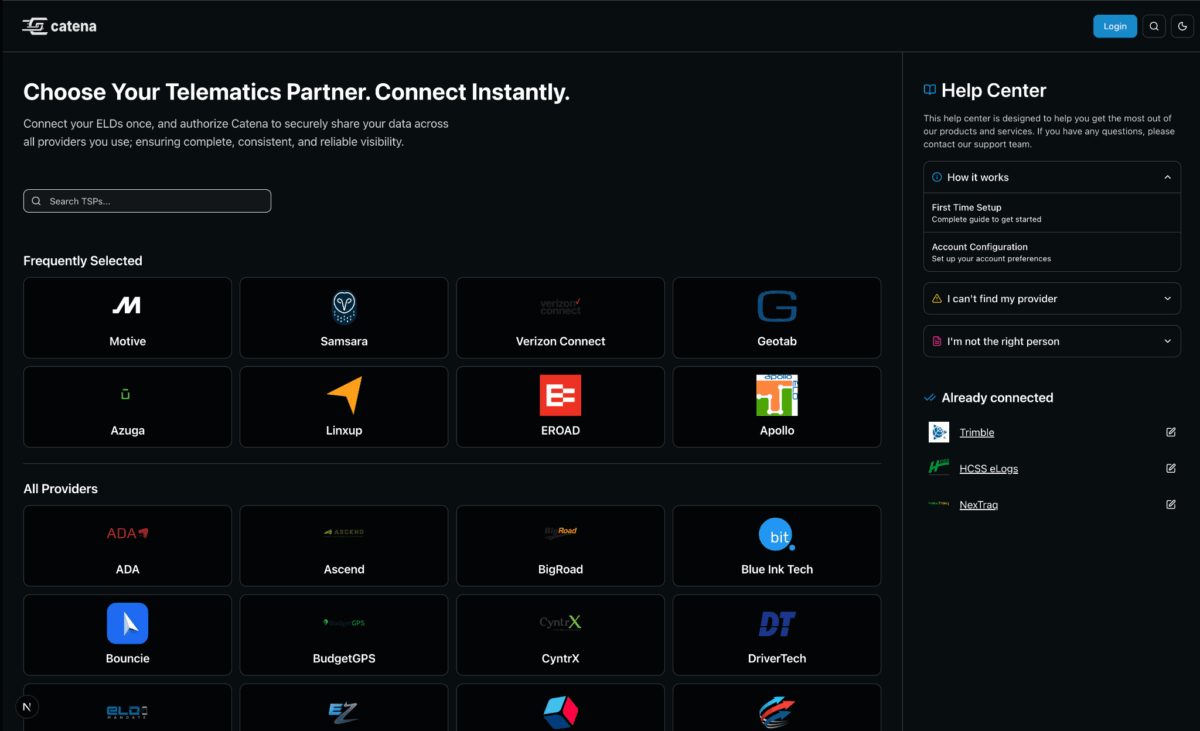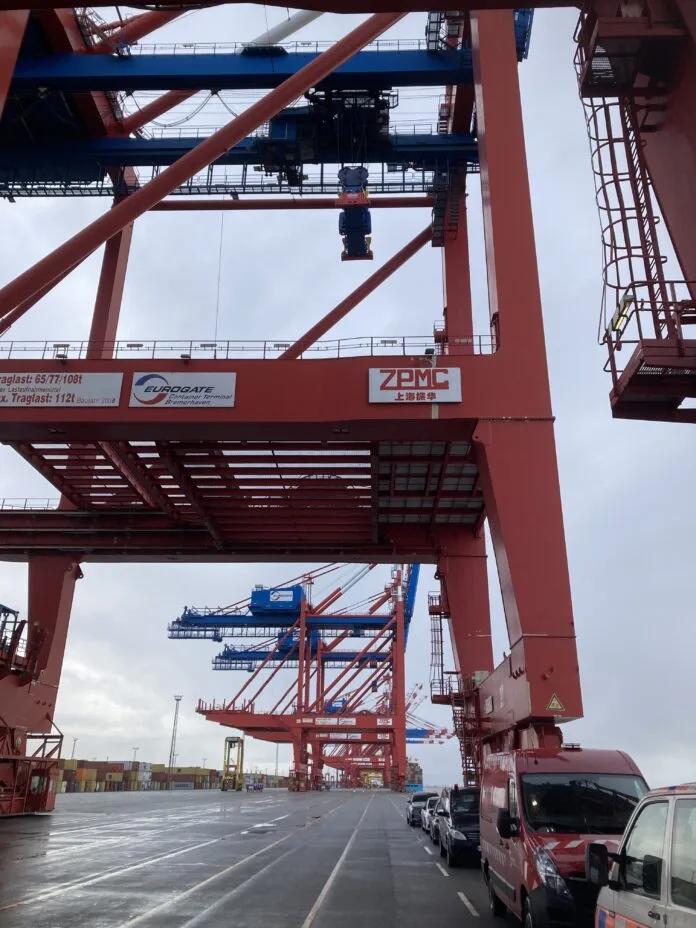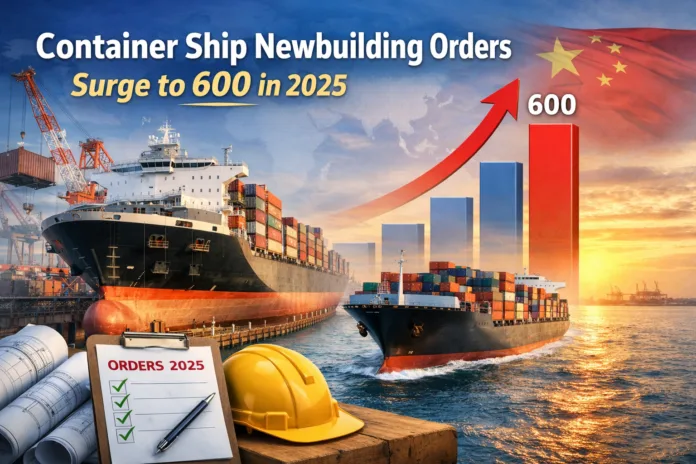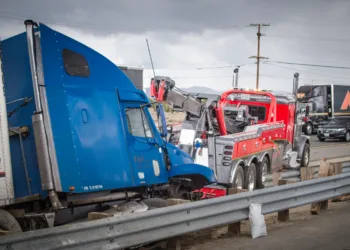The freight industry has long struggled with a fundamental problem: messy, fragmented data. Manual check calls, siloed platforms, and limited visibility still define how billions of dollars’ worth of freight moves across the U.S. every year. Catena, a New York–based startup, believes it has found the solution, a neutral data infrastructure layer designed to connect, clean, and standardize logistics data at scale.
The company announced it has raised a $5 million seed round led by Floating Point, with participation from Shaper Capital, Teamworthy, Plug and Play, SpringTime Ventures, Liquid 2, Blue Moon, and Blue Impact Supply Chain Ventures. The round also includes more than 20 leading logistics executives from Augment, Fillogic, FreightWaves, OTR Transportation, Reliance Partners, TalentSolvers, TruckSmarter, TrueNorth, and more.
The round follows a $3 million raise last year, bringing Catena’s total funding to $8 million to date.
Catena was founded by three industry veterans: CEO Jeremy Baksht, who previously held senior roles at Walmart, Bloomberg, and Citigroup; Travis May, CEO of Shaper Capital and co-founder/former CEO of LiveRamp and Datavant; and CTO Mike Goynes, who previously led data teams at Interos and Optoro.
For Baksht, the idea of Catena came from a simple but frustrating reality: U.S. trucking lacked a reliable source of over-the-road data. “Inventory management and visibility are key, but you can’t get there without clean data,” he explained. “That was the ah-ha moment, the neutrality of design and pulling clean data directly from the source felt like the right solution for transportation capacity.”
Catena’s approach is deliberately different from other players in the logistics data space. While visibility platforms often rely on shippers to push data into their networks, Catena goes directly to the carrier and even to the tractor itself. The company’s embedded applications connect to telematics and other partner systems, pulling in first-party data that offers a clearer picture of what’s happening on the road, from whether a truck has run out of fuel to whether a mechanical issue is preventing it from reaching its destination.

That neutrality is central to Catena’s identity. “We’re not a TMS, and we’re not trying to be one,” said Baksht. “We want to sit inside the stack, not replace it. Think of us as the intel inside the laptop, never the application layer.”
Goynes echoed that vision from the technical side. “At Catena, we’re solving data fragmentation problems in supply chains,” he said. “There are hundreds of proprietary data feeds in telematics alone. By creating a standard, unified layer on top of those feeds, we enable our customers to avoid building, monitoring, and maintaining hundreds of integrations. Our platform removes the complexity of managing countless authentication patterns, API technologies, rate limits, and schemas, giving our customers clean, permissioned data they can build on with confidence.”
That foundation, Baksht believes, unlocks new opportunities in freight brokerage, insurance, and fintech. By providing verified, real-time access to truck data, Catena can help prevent fraud at the pump, improve underwriting for insurers, and power advanced credit and risk models. “AI models are easy to access,” he said. “What really drives results is the data behind them. If the data is messy or second-hand, AI can’t deliver.”
The seed funding will accelerate Catena’s product development, expand integrations with telematics providers, and scale partnerships across freight, insurance, and fintech. The company is prioritizing engineering first, followed by customer success and go-to-market efforts. While Catena is initially focused on North American trucking, its roadmap includes global expansion and eventually multimodal coverage across ports, rail, and air.
Investors see Catena’s role as foundational. “Freight needs to modernize,” said Eddie Segel, General Partner and co-founder of Floating Point. “Yes, AI will be a big part of that story, but there’s a deeper data challenge that is holding the whole industry back. Catena is the missing data layer to connect carriers to essential fintech and brokerage services, while giving those platforms instant access to the carrier market. It puts every fleet on a single common operating system. Everybody wins — which is why we see the industry lining up behind this platform.”
As Baksht put it, Catena aims to be a neutral, trusted layer that makes messy freight data finally usable. Or, as he framed it: “We’re the plumbing behind the wall. And when the plumbing works, everything else starts to flow.”
Note: FreightWaves Founder and CEO Craig Fuller is an angel investor in Catena Clearing.
The post Why Catena’s Approach to Freight Data Matters Now appeared first on FreightWaves.



















